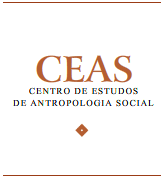Summary
Cities and organisations are recent anthropological fields and ethnography has strongly contributed to the understanding of these complex social and cultural realities. Cities can be defined as complex sites characterized by a deep social and cultural diversity where plurality and interaction between various cultures can be seen in different domains, from the micro level of daily life practices to wider levels of social representations. To understand organisational cultures in urban settings has become a major preoccupation to managers, bureaucrats, government, indigenous and social scientists. The anthropological study of people’s practices in different organisations and these institutional policies can illuminate the complex ways of attributing and manipulate meanings and establishing power relations within organisational settings. This theoretical line will be pursued through research projects based on ethnographic fieldwork centred on the study of the culture and social configurations of Portuguese organisations (such as police, local neighbourhoods and youth cultures) in order to deepen ethnographic knowledge and theoretical discussion on these topics. The organisation of international conferences, thematic workshops and cooperation with post graduation programs (such as ISCTE Doctoral Program in Urban Anthropology) will favour the scientific debate on this area of research.

